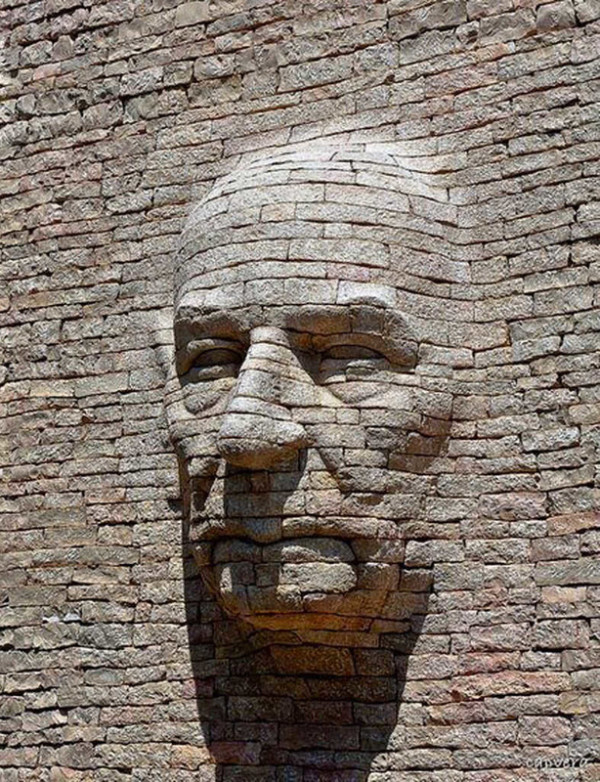Why nationalism is rising: it works!
Over at Counter Currents — which has banned me for not discussing the infamous “JQ” ideologically correctly — Guillaume Durocher makes several powerful points in favor of universal nationalism, or every state on earth being nationalistic:
It matters not whether the ethnic differences are based on language (Belgium, Canada), religion (Iraq, Syria), or race (the United States, Mexico, Brazil, South Africa . . .). In each case, the lack of a common identity leads to a perpetual tribalization of politics. These problems are sometimes peaceful, and often they lead to otherwise unnecessary ethnic civil wars, but in each case there are intractable problems. People on average are simply not as willing to submit to authority, pay taxes, or give their life in war for another group, as they would for their own group. In a word: There is no solidarity.
To my mind, it makes sense to turn this around from a negative point to a positive one: with nationalism, you have solidarity without needing ideology and government. People, from a place within themselves, want to do right and they use their national culture as a means of assessing what is right and thus, what will be rewarded by others.
Durocher lists a number of other good points, but this seems to be the core of it: instead of forcing people to get along, choose people who are headed in the same direction and have the same interests and values, and they will desire to get along. Their striving will make it happen without requiring a neurotic layer of government, propaganda and “education” to humiliate and compel them to obey.
It is this positive desire to cooperate with others toward a goal — corresponding to what Evola might have called the inner states — that makes nationalism superior. It is simply more efficient. You do not require a strong-arm government, bureaucrats and media; instead, people naturally get along because they are the same sub-group of a sub-species.
Over at Not Politically Correct, another viewpoint is expressed which is also both right in conclusion and wrong in reasoning:
It’s clear that we are more altruistic to people who look more phenotypically similar to ourselves, to pass on and benefit copies of our genes. This evolved in spite of the negative impact on behalf of the altruist. The altruist is helping copies of his shared genes survive so that they may be copied into the next generation of progeny. The tendency to favor co-ethnics is the tendency to attempt to help pass on shared genes, as if the phenotype is similar, more often than not, the genotype is as well. This is the basis for ethnocentrism.
First, he makes the mistake of calling this process “altruism.” If self-interest is involved, it is not altruism, and calling it so will mislead the vast majority of people reading the article.
But the bigger point that is lost here, I think, is that people identify with a group based on its members being allies, and also see these people as helping the individual collaborate toward a goal. In other words, they are working together toward a common purpose, and that common purpose alone unites them.
This point is downplayed by most racialists who know that liberals will turn around and say, “Great! We’ve got a common purpose, too, called ‘egalitarianism’ and we’re going to use it to destroy your society.” But that is not a common purpose; it is an ideology, which is a belief about what purpose should be and not a purpose in itself, or it could be achieved.
Further, part of common purpose is the creation and nurturing of civilization itself. That requires identity, or a group of the same genetics, because in our heart and guts each of us knows that the happiest and best societies are homogeneous and use that homogeneity as a basis for their own further upward evolution.
I have written on these topics previously (not to mention previous writings at CORRUPT, ANUS, on USENET, and on a number of third-party nationalist sites, going back to 1997). This is not new ground, and this has always been my position: cooperation is more efficient than coercion, and produces better results, and cooperation is only achieved by unity of race, ethnicity, values, culture and moral character, including the ability to see the wisdom of caste systems, aristocracy and traditions. That group is my people.
The concept of “universal nationalism” is appealing, but too ideological for me. Nationalism works for those sane enough to try it; my people need it; my people do not owe a living to any other group. We act in self-interest because our actual interest is in our shared purpose, and the rest of the world will have to find its own path.
Tags: diversity, ethnic self-determination, ethnocentricism, ethnoculturalism, internationalism, multiculturalism, nationalism










